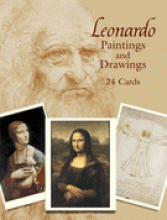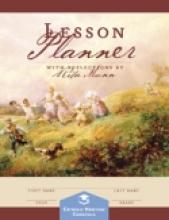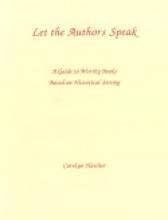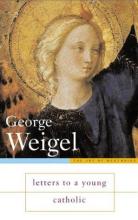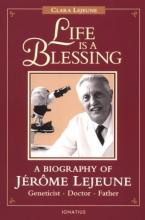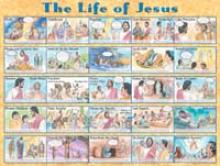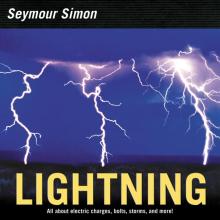No name
Leonardo Paintings and Drawings: 24 Cards
24 Postcards in perforated book
Most homeschoolers are familiar with the Montessori-style idea of having children learn to enjoy and appreciate great paintings by studying small post-card size reproductions (especially as promoted by Aline Wolf in Mommy It's a Renoir). This is a very nice program, as I understand it, but I've been frustrated with the lack of beautiful painting collections in postcard size. You can find them here and there at museums, but they have been very difficult to purchase on the web or from catalog. Dover Publications is beginning to fill that gap with some beautiful postcard collections, but Leonardo is my favorite so far.
The set includes 13 reproductions of paintings: Madonna with the Carnation (1475), The Virgin and Child with St. Anne (1508), Bacchus (circa 1513), Portrait of Ginerva de'Benci (circa 1478), The Last Supper - detail (1495-1497), The Benois Madonna (circa 1478), The Annunciation - detail (circa 1472), St. John the Baptist (circa 1513-1516), Portrait of Cecilia Gallerani a.k.a. Lady with an Ermine (circa 1490), Madonna of the Yarnwinder (1501), Madonna Litta (circa 1490), Mona Lisa (1503-1506), and Portrait of a Musician (circa 1490).
There are 11 beautiful drawings as well: The Virgin and Child with St. Anne, Profile of a Young Woman, Antique Warrior, Self-Portrait, Five Grotesque Heads, The Virgin of the Rocks, Vitruvian Man, Study for the Last Supper and Architectural Sketches, Old Man and Youth, Study for the Battle of Anghiari and Feminine Headdress.
This is a great and inexpensive way to introduce children to really great art. Also would make a nice supplement to Leonardo da Vinci for Kids.
Lesson Planner
Can a practical, hard-working tool designed for everyday use also be inspiring and elegant? The CHC Lesson Planner is just such a tool. Developed to be used with the CHC Middle School Lesson Plan Guide, it is completely useful at any grade level and with any curriculum. This inexpensive plan book is consumable and designed for all subjects for one student for one academic year. This unusual feature supports the CHC philosophy that a student should gradually grow into independent study; having their own planner helps the student to take pride in their growing ability to work productively and independently. The Planner is specifically for a Catholic teacher and student, with reminders of Feast Days in the planning reminders and other Catholic references throughout.
Clear, uncluttered pages are printed using an easy-on-the-eye brown ink. They are spiral bound in a lay-flat presentation with a "jelly-proof"cover. The inside covers concisely lay out the CHC curriculum suggestions for grades 5-8. The Planner is designed for four nine-week quarters and begins with a "Welcome" section that provides help and advice for the start of a new school year. Warm and encouraging, there are specific suggestions for the entire family as well as the middle school-aged student. Each quarter's section begins with a well-organized planning guide, an independent study chart (described in the Middle School Lesson Plan Guide in detail, but a completed sample is provided), and a motivating reflection for the homeschool teacher to ponder throughout the quarter. Each school week is laid out on a two-page spread with a grid for 8 subjects or goals over 5 days. A sample of a completed week is provided. Each week's spread also includes a section for notes and, my favorite, a motivational reflection that is either a helpful hint, useful advice, or a Biblical quotation. This book helps to make planning an enjoyable task as well as a concise documentation of the student's work for the entire school year.
Let the Authors Speak
The introductory chapters (18 pages) provide an excellent, down-to-earth, discussion of the importance of reading good books, and other worthwhile aspects of the educational philosophies of Charlotte Mason. This introduction is probably worth the price of the book even without all the subsequent book lists! This book provides a helpful resource in adding good books to a history course and excellent background reading on educational philosophy for parents.
Letters to a Young Catholic
In this small bok, author George Weigel takes us on a journey around the Catholic world, both literally and figuratively. Weigel had the idea to present each different aspect he wanted to discuss with young adult Catholics (and any adult interested in learning a little more about the Faith) by taking his book reading companions on a journey to several noted Catholic destinations, such as Chartres Cathedral in France, the Sistine Chapel in Rome, and various destinations in Poland and America. At each location, Weigel stops to discuss some aspect of Catholic Christianity with his reader.
Weigel begins by telling the reader a little bit about his own upbringing as a Catholic boy in Baltimore. He spends a chapter talking about an energetic parish in South Carolina, and why the pastor, a convert, has succeeded in making the parish dynamically orthodox. Weigel spends time in England with G.K. Chesterton, another convert, and uses a number of Chestertonian quotes to talk about the faith. Flannery O'Connor, too, emerges as one of Weigel's favorite authors, and her quotes are funny, pithy, and speak to the heart.
The author's discussion of redemptive suffering, Theology of the Body, the use of icons and much, much more, make this a book I recommend to all young, and not-so-young Catholics.
You can read a chapter from the book at the Catholic Educator's Resource Center.
Also available in softcover published by Perseus
originally appeared in Heart and Mind Magazine, Spring 2005 - used with permission
Life is a Blessing
Written by his daughter, this book brings us a portrait of a great Christian, loving husband and father, and devoted son who was also one of the greatest scientists of the 20th century.
As a pediatrician, Jérôme Lejeune saw many patients with Down syndrome. Seeking to help these beloved patients and their families, he succeeded in tracing the cause of Down syndrome to an extra 21st chromosome. He could have named the genetic anomaly after himself, but with his characteristic humility, he named the condition "Trisomy-21," meaning three 21st chromosomes (instead of two). While his work did succeed in removing the stigma from Downs (it had previously been thought that maternal syphilis caused it), Lejeune was heartbroken to see his discovery turned into a weapon against the little ones he loved so much.
Further discoveries in the field of genetic medicine followed, including Trisomy-13 and monosomy-9. But despite his pioneering work, which opened up the field of genetically-based diseases, he was never awarded a Nobel Prize, likely due to his unwelcome pro-life views. There was worse to come. Because of his defense of the innocent and defenseless, Lejeune found himself increasingly sidelined. Nevertheless, he continued to bear a hope-filled Christian witness, forgetful of self, a shining example to us all.
Toward the end of his life, Dr. Lejeune worked to found the Pontifical Academy for Life and was (very briefly) its first president. He died on Easter Sunday, a circumstance in which his friend Pope St. John Paul II found a particular significance.
A beautiful book about a great man.
 Originally published in French by Criterion, Paris, 1997.
Originally published in French by Criterion, Paris, 1997.
A newer edition of this title has been published by the Catholic University of America Press in 2022 for the National Catholic Bioethics Center and the Jérôme Lejeune Foundation. This edition's ISBN is 9780935372595. It is only $7.95 direct from the publisher, less than half the current Amazon paperback price.
Life is Beautiful
Life of Jesus
We put this poster up in our upstairs hallway thinking that the colorful pictures would be attractive to the little ones and help them develop a better understanding of the Life of Jesus. The full color drawings are attractive but dignified. It's been a big hit so far. I find my six year old reading words here and there, my four year old asking about what happens in different pictures and my two year old pointing to her favorite scenes. The pictures include simple descriptions and dialogue along with Biblical references.
Bernie (age 4) says: "I like Christmas and Easter and Palm Sunday and the Last Supper. And I like when Jesus was baptized. Jesus made water into wine."
Terri (age 6) says: "I think the poster looks pretty. It is about God. I like the pictures of Palm Sunday. It looks like fun."
Gus (age 8) says: "It's sort of like a Picture Bible on one poster."
Four reproducible work sheets cover "the Miracles of Jesus", "the Parables of Jesus", "Who is Jesus" and "Events in the Life of Jesus".
Update March 2024: Ascension Press used to carry these wall charts but no longer does. However, they are still being published (see the box at the top of this review for details).
Light to the Nations
Lightning
Seymour Simon, famous for his children's science books illustrated with stunning photography, hits another home run with Lightning. This fascinating book details facts and fascinating statistics about lightning with lots of the "wow!" effect that helps keep middle-schoolers interested in science. Did you know that scientists have discovered new types of lightning within the past ten years? How long would the electricity from one bolt of lightning power one lightbulb? These and many more fascinating photos and facts await the reader of this very nice science book. I really like to have these kinds of books around my house to help my children get a lot more out of science than I did as a child.

